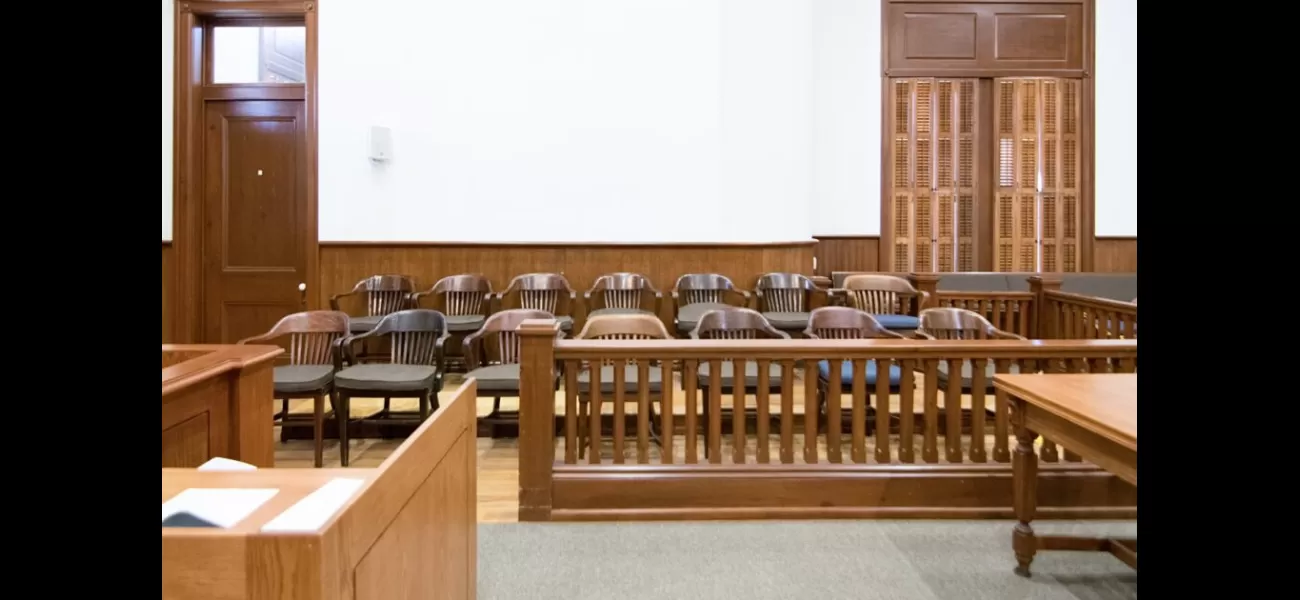A significant trial may question the use of death penalty because of racial prejudice in selecting jurors.
High-stakes court hearing in NC could change fate of 135+ death row inmates by examining racial bias.
February 23rd 2024.

Next week, a crucial court hearing will take place in North Carolina, and it has the potential to greatly impact the lives of over 135 individuals on death row. According to NBC News, the hearing will examine the issue of racial bias in jury selection for capital cases. The lead case at the center of this hearing is that of Hasson Bacote, a Black man who was sentenced to death by a mostly white jury in 2009. The case will specifically focus on the application of the state's Racial Justice Act.
Bacote, who is now 37 years old, is seeking to challenge his death sentence under the Racial Justice Act of 2009. This act allowed death row inmates to seek resentencing if racial bias played a role in their cases. Although the act was repealed by then-Governor Pat McCrory in 2013, a 2020 ruling by the state Supreme Court favored many inmates, allowing them to move forward with their challenges.
The upcoming trial in Johnston County will serve as a battleground for Bacote's legal team, which includes lawyers from the American Civil Liberties Union (ACLU). They plan to present statistical evidence that highlights the ongoing impact of discrimination in jury selection. Senior counsel with the ACLU, Henderson Hill, stated, "We believe that the statistical evidence will be compelling and clearly demonstrate the long-lasting effects of discrimination."
The case alleges that local prosecutors in Johnston County have been disproportionately excluding people of color from serving on juries. Bacote's legal team argues that in his trial, prosecutors were more than three times as likely to strike prospective Black jurors compared to white jurors. They also plan to call upon historians and social scientists to establish a pattern of discrimination in both Bacote's trial and in Johnston County as a whole.
The evidence includes claims that the death penalty has been sought and imposed more frequently on Black defendants and minorities in Johnston County. Prosecutors' references to the physical appearance of Black jurors in other capital cases in North Carolina are expected to strengthen the argument.
In a shocking turn of events, North Carolina Attorney General Josh Stein's office is seeking to delay the hearing, calling into question the reliability of claims based on a study from Michigan State University. While acknowledging the abhorrent nature of racial bias in jury selection, Stein's office argues that a claim of discrimination must be proven and cannot be simply assumed.
The significance of this hearing goes beyond just Bacote's case; it also intersects with larger debates surrounding the death penalty in North Carolina. With gubernatorial, attorney general, and state Supreme Court elections on the horizon, the hearing takes place in a politically charged environment. Anti-death penalty advocates have called on Governor Roy Cooper to commute the remaining death sentences.
Cassandra Stubbs, director of the ACLU's Capital Punishment Project, emphasized the broader implications of the hearing, stating, "There is no doubt that our evidence in Hasson Bacote's case adds to the ongoing conversation in North Carolina about whether or not we should continue to use the death penalty or if the governor should commute the sentences."
Bacote, who is now 37 years old, is seeking to challenge his death sentence under the Racial Justice Act of 2009. This act allowed death row inmates to seek resentencing if racial bias played a role in their cases. Although the act was repealed by then-Governor Pat McCrory in 2013, a 2020 ruling by the state Supreme Court favored many inmates, allowing them to move forward with their challenges.
The upcoming trial in Johnston County will serve as a battleground for Bacote's legal team, which includes lawyers from the American Civil Liberties Union (ACLU). They plan to present statistical evidence that highlights the ongoing impact of discrimination in jury selection. Senior counsel with the ACLU, Henderson Hill, stated, "We believe that the statistical evidence will be compelling and clearly demonstrate the long-lasting effects of discrimination."
The case alleges that local prosecutors in Johnston County have been disproportionately excluding people of color from serving on juries. Bacote's legal team argues that in his trial, prosecutors were more than three times as likely to strike prospective Black jurors compared to white jurors. They also plan to call upon historians and social scientists to establish a pattern of discrimination in both Bacote's trial and in Johnston County as a whole.
The evidence includes claims that the death penalty has been sought and imposed more frequently on Black defendants and minorities in Johnston County. Prosecutors' references to the physical appearance of Black jurors in other capital cases in North Carolina are expected to strengthen the argument.
In a shocking turn of events, North Carolina Attorney General Josh Stein's office is seeking to delay the hearing, calling into question the reliability of claims based on a study from Michigan State University. While acknowledging the abhorrent nature of racial bias in jury selection, Stein's office argues that a claim of discrimination must be proven and cannot be simply assumed.
The significance of this hearing goes beyond just Bacote's case; it also intersects with larger debates surrounding the death penalty in North Carolina. With gubernatorial, attorney general, and state Supreme Court elections on the horizon, the hearing takes place in a politically charged environment. Anti-death penalty advocates have called on Governor Roy Cooper to commute the remaining death sentences.
Cassandra Stubbs, director of the ACLU's Capital Punishment Project, emphasized the broader implications of the hearing, stating, "There is no doubt that our evidence in Hasson Bacote's case adds to the ongoing conversation in North Carolina about whether or not we should continue to use the death penalty or if the governor should commute the sentences."
[This article has been trending online recently and has been generated with AI. Your feed is customized.]
[Generative AI is experimental.]
0
0
Submit Comment





